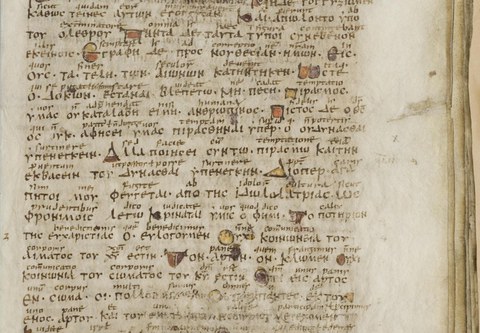Biblical Theology
Biblical theology has the task of perceiving the biblical tradition in its specific character and making it heard in the discussion between the theological disciplines. Biblical theology makes the Old and New Testaments transparent as the basis and starting point of all further theological theorizing and introduces the respective profile of the biblical texts as a critical authority into the theological discussion.
In addition to imparting biblical knowledge, the most important task is to approach the potential meaning of the biblical texts in their historical context. To this end, the religious traditions and writings of ancient Israel and early Christianity are examined in their ancient Near Eastern or Roman-Hellenistic context using the methodological tools of historical and literary studies: political history, history of religion and tradition, social and legal history, ancient literary and formal history, etc.
By revealing the differences between the meaning of the biblical writings in their historical contexts of origin and their diverse reception at different stages of theological and church history, biblical theology opens up the space for the present in which a responsible theological judgment becomes possible in the first place. At the same time, it trains the ability to accept what is foreign as foreign - an indispensable prerequisite for any discussion in a pluralistic society. The situation of the Institute at the Faculty of Arts, Humanities and Social Science offers ideal conditions for looking beyond one's own (theological) horizons.
Working at the Institute of Protestant Theology in Biblical Theology are
Prof. Dr. Jan Heilmann
Jonas Müller (Research Assistant)
Ongoing and completed projects (third-party funding):
- DFG project/grant "Die neutestamentlichen Abendmahlsüberlieferungen in der Alten Kirche" (AMAK)
- DFG network "Meal and Text" (MaTe) (completed)
- The text of the first edition of the New Testament (completed)
Further information can also be found on the Biblical Theology blog: https://enipolatio.hypotheses.org/
